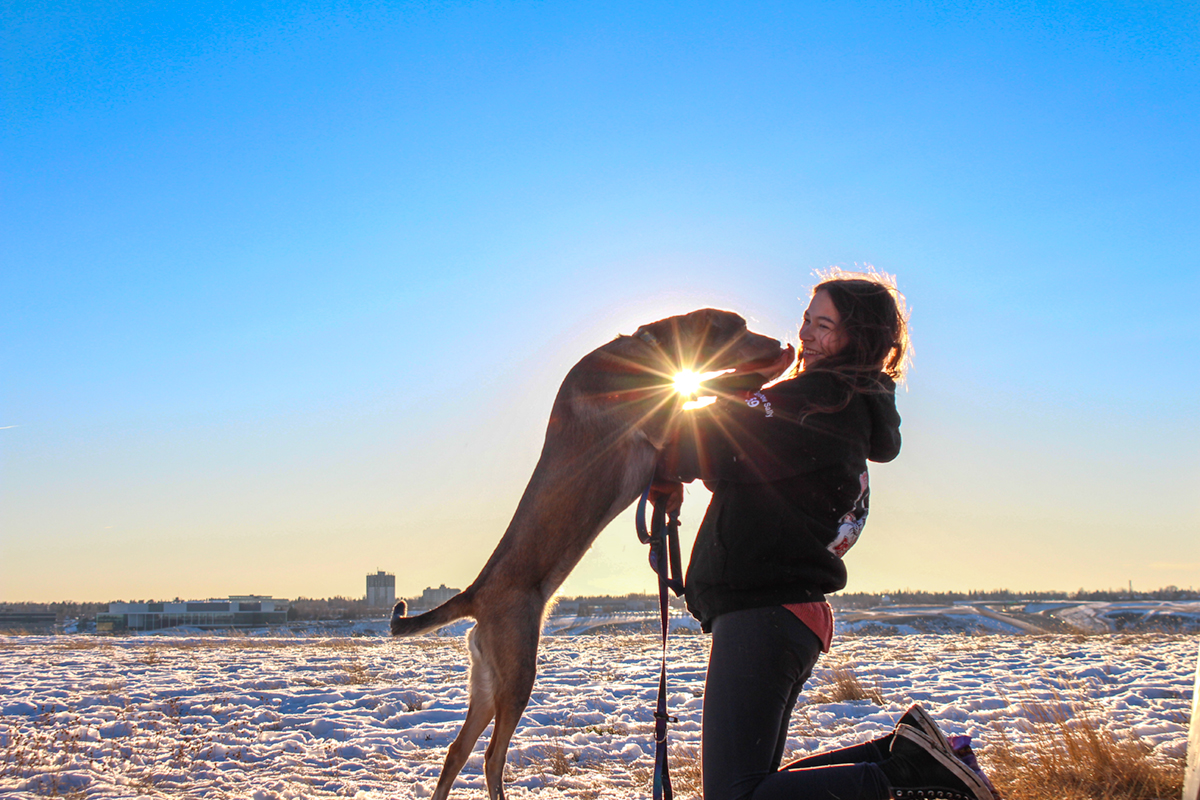Karma Davis and Halo enjoy some playtime on their walk after a long day of school on Nov. 21, 2022. Photo by Jesse Wikdahl.
Humans have depended on animals for a longtime. Dogs and horses along with other animals have been our best friends for thousands of years. We connect and communicate with them to overcome and accomplish amazing things.
Animal-assisted therapy helps use this connection between the animal, the professional and the client to achieve a goal specific to meet their individual needs.
This type of therapy can prove to be a great benefit for almost anyone and is usually coupled with other forms of counselling or therapy.
“Animal-assisted therapy is part of a larger umbrella term called animal-assisted interventions,” says Kayla Shore, registered provisional psychologist, M.Ed. and owner of Shore Psychological Services. “Included under the umbrella is animal-assisted interventions, animal-assisted activities and animal-assisted therapy.”
The modality takes its form in many ways as every animal is unique. It takes years of training to understand and learn their capabilities and how they can best help their client. Counsellors and therapists spend much of their time with the animals and consider them more partner than pet.
Marvin Vandenhoek registered therapist and owner of Blue Rein Ranch just outside Lethbridge and a Canadian certified counsellor who works mainly with horses and tells us they are his “co-therapists.”
“The horses provide what we call biofeedback and that means that horses will reflect to the person the emotion that, that person is feeling,” says Vandenhoek.
Vandenhoek says when somebody is feeling anxious, the horse will naturally also be anxious. The opposite is true as well. When you have a calm horse, it will help the person to feel calmer. The emotinal connection going back and forth between the animal and the person really helps people to get in touch with their emotions, which is another huge part of counselling.
Currently in Canada there is no regulation of animal-assisted interventions but both Shore and Vandenhoek hope to see some coming very soon.
Shore is a member of the Canadian Counselling and Psychotherapy Association in the animal-assisted therapy in counselling chapter that have developed a core competency document outlining the many standards that professionals should be following to provide adequate care of both the client and the animal.
“In Canada, we have organizations that provide training, courses and certification in these areas as well. We are very close to having Canadian national standards for working with animals in practice and these will be the first government standards globally,” says Shore.
Animal assisted therapy is only one of many modalities of therapy or counselling available.
If you or anyone you know needs help reach out.
For immediate 24-hour assistance call the Lethbridge distress line at 403-327-7905 or call the Mental Health Help Line at 1-877-303-2642. You can also connect with the Canadian Mental Health Association online at cmha.ca.



